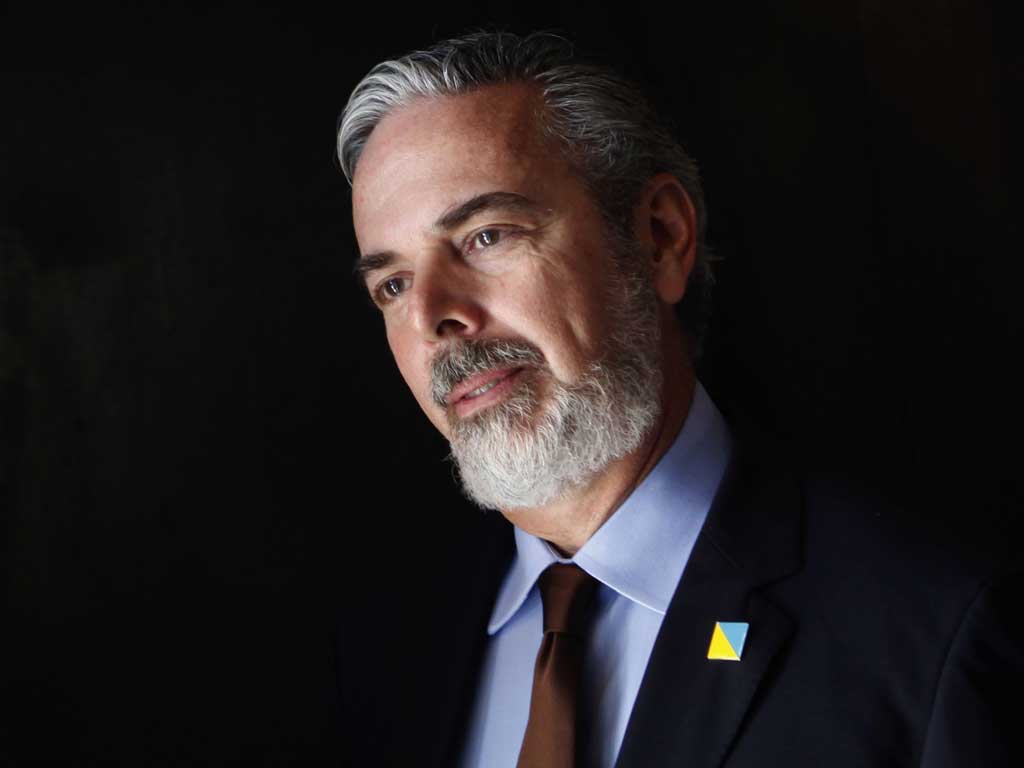Diplomatic war erupts after Bolivian senator flees to Brazil
Officials in La Paz launch inquiry as dissident leaves country with the aid of Brazilian embassy

The Bolivian government is demanding answers after a Brazilian diplomat engineered the “serious surreptitious exit” of a Bolivian opposition senator accused of corruption.
La Paz has called on Brazilian officials to explain how right-wing politician Roger Pinto was helped to flee from Bolivia to Brazil without the official permission of either country.
Mr Pinto entered Brazilian territory over the weekend after spending more than a year at the Brazilian embassy in La Paz, having been granted asylum. He had been sentenced to 12 months in prison by the Bolivian government over allegations of corruption, but claims he is being politically persecuted for his opposition to president Evo Morales, whose government he accuses of being corrupt. According to the Bolivian government, Mr Pinto faces 14 charges, which include libel and slander.
Mr Pinto is believed to have fled to Brazil in an embassy car on 23 August accompanied by a convoy of Brazilian marines. The convoy reached the city of Corumbá in the Brazilian south-west state of Mato Grosso do Sul after travelling for 22 hours.
The episode has claimed one professional scalp – that of Brazil’s foreign minister Antonio de Aguiar Patriota, 59, who handed in his resignation on Monday after the Brazilian chargé d’affaires in La Paz, Eduardo Saboia, admitted responsibility for the operation. He said Mr Pinto, who was holed up in the Brazilian embassy in La Paz for 15 months, had been depressed and expressed suicidal thoughts.
“I chose life. I chose to protect a person, a persecuted politician, like President Dilma was persecuted,” Mr Saboia told the Globo television channel, referring to President Dilma Rousseff’s detention during the dictatorship in Brazil, when she was part of a Marxist guerrilla movement.
In an interview with the news magazine show Fantastico, Mr Saboia said he helped Mr Pinto as there was an “imminent risk to the life and dignity of the senator. There was a continued, chronic violation of human rights because there was no prospect of departure, there was no ongoing negotiation and there was a problem of depression that was worsening,” Mr Saboia said.
“We had to call a doctor and he started talking about suicide, saying repeatedly that he wanted us there and his lawyers also said this.”
Mr Pinto is now believed to be in Brasilia, where he was photographed on Sunday at the home of lawyer Fernando Tiburcio Peña. Speaking today, Mr Saboia told Estado de Sao Paulo that it was his decision alone to help Mr Pinto. When asked if he expects to be punished for his action, he said: “I surrender to God. I’ve received a lot of support from colleagues.”
David Choquehuanca, Bolivian foreign minister, suggested that national and international agreements had been breached by the episode.
He expressed his “deep concern about the violation of the principle of reciprocity and comity” by Mr Pinto’s escape. “There are several versions, several claims in several media,” he said.
“We need to explain formally; the Bolivian community, the international community needs to know how these incidents have happened as they have violated international standards.”
Political commentators said the episode was viewed as a “disaster” by Ms Rousseff’s government. According to the political blog in O Globo newspaper, Panorama Politico, the two governments had agreed seven months ago Mr Pinto would travel to Brazil, but the Bolivian government would not guarantee his safety as he travelled from La Paz. The official position in Brazil was that Mr Pinto’s journey should be made above board.
A Brazilian government aide told O Globo the risk of the covert operation had been “immense”. “Imagine what would have happened if the convoy was attacked in the middle of the road and the senator escaped or was kidnapped,” the aide said.
In spite of the embarrassment, both sides appear to be taking steps to limit any diplomatic damage. A commission has been set up in Brazil to investigate the incident, and Juan Ramon Quintana, minister of the Bolivian presidency, said: “The case of Roger Pinto is like any other citizen. It does not affect the relationship between Brazil and Bolivia, which is a long-term bilateral relationship.”
Break for the border: The key players
Antonio Patriota
He served as Foreign Minister under Dilma Rousseff. She was said to be “dissatisfied” by his response to the detention of David Miranda in Britain this month, as well as by the Pinto scandal.
Dilma Rousseff
Brazil’s President rode into office in 2011 on a wave of support amid prosperity. But during July’s protests against corruption, her approval ratings dived by 30 per cent.
Eduardo Saboia
The Brazilian diplomat based in Bolivia who took responsibility for organising Mr Pinto’s escape. He claims he tried to negotiate Mr Pinto’s safe passage to Brazil during two trips to Brasilia.
Luiz Alberto Figueiredo
The UN ambassador, who was the chief negotiator for the Rio +20 summit last year, will become Brazil’s new Foreign Minister in place of Mr Patriota. Figueiredo’s first official engagement will be with the Union of South American Nations.
Subscribe to Independent Premium to bookmark this article
Want to bookmark your favourite articles and stories to read or reference later? Start your Independent Premium subscription today.

Join our commenting forum
Join thought-provoking conversations, follow other Independent readers and see their replies